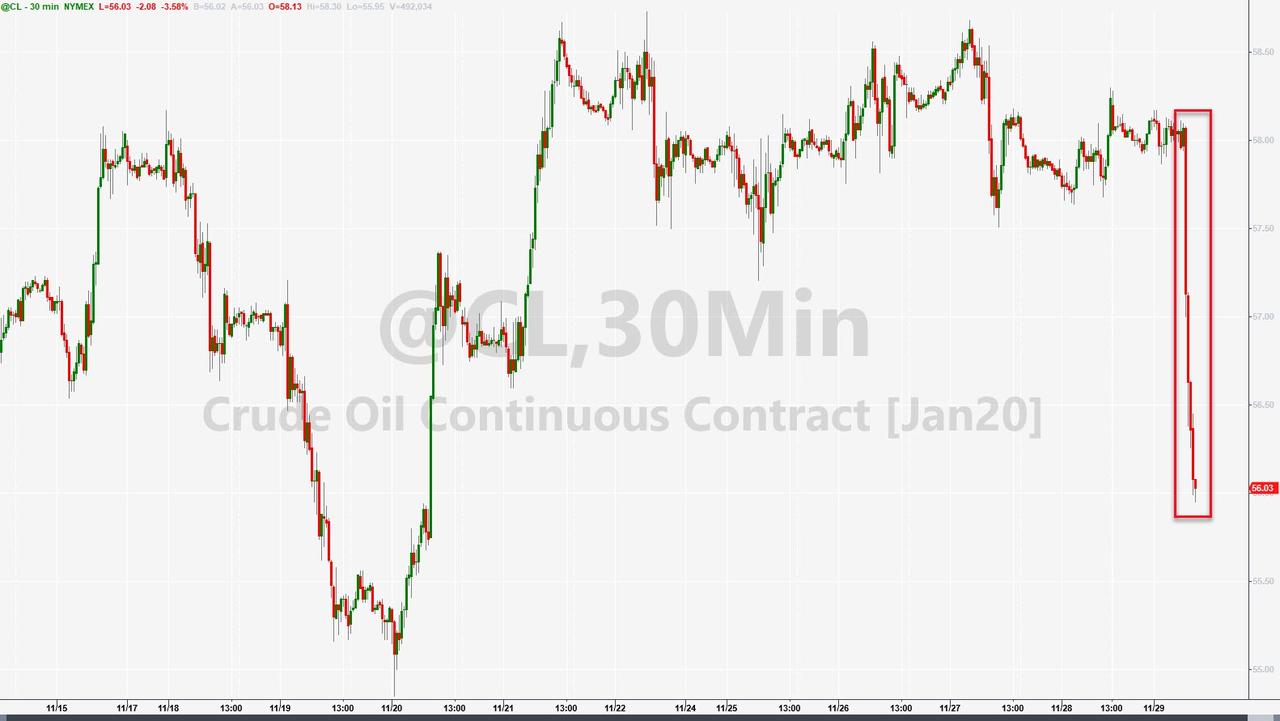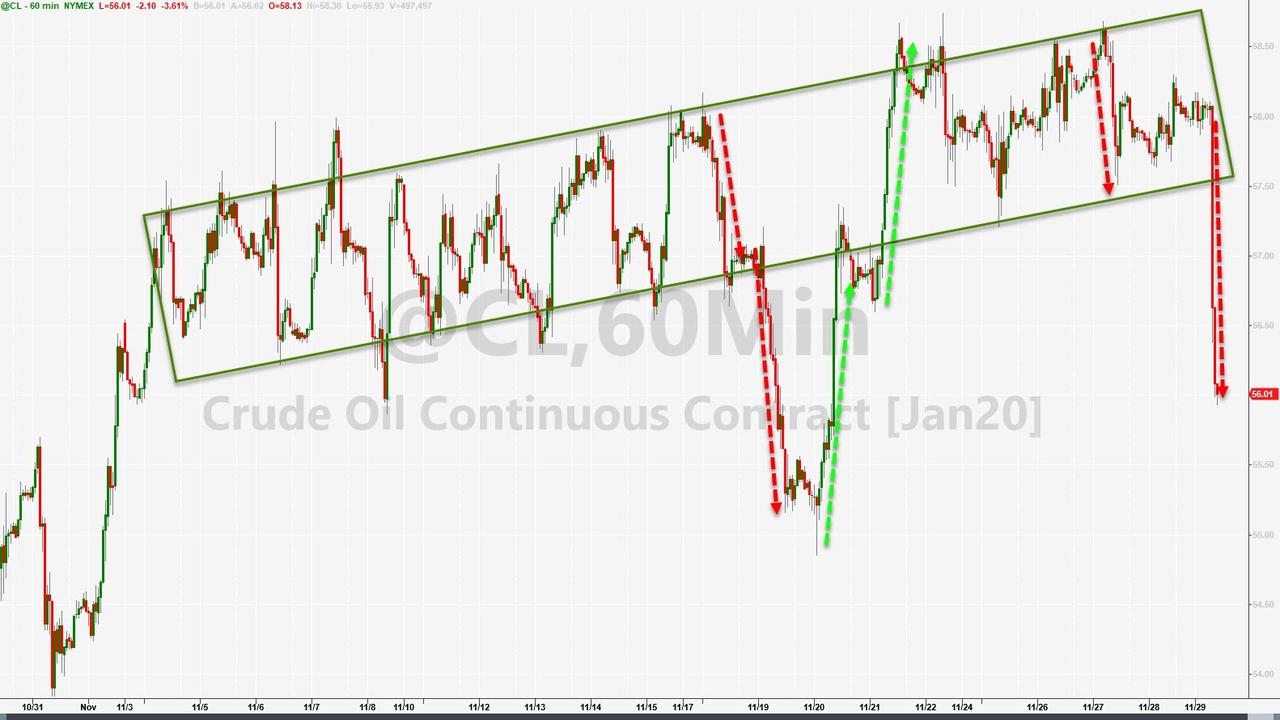Crude Crashes As Saudis Signal Intolerance To OPEC 'Partners' Cheating
WTI Crude is plunging this morning amid chatter that OPEC and allied crude producers are averse to deepening output cuts when they convene next week.
(Click on image to enlarge)

Bloomberg reports that, according to people familiar with the kingdom’s thinking, Saudi Arabia probably will indicate it’s no longer willing to compensate for excessive production by other members of the cartel.
Additionally, the Tass news agency reported that Russia’s oil minister said it’d be better to postpone any new supply caps until April.
“The OPEC accord with Russia could be fraying a bit,” said John Kilduff, a partner at Again Capital.
“It undercuts and undermines everyone’s perception of the commitment.”
(Click on image to enlarge)

Despite Friday’s slump, New York-traded futures were on track for the biggest monthly advance since June amid optimism the U.S. and China are closing in on a trade accord.
Disclosure: Copyright ©2009-2019 ZeroHedge.com/ABC Media, LTD; All Rights Reserved. Zero Hedge is intended for Mature Audiences. Familiarize yourself with our legal and use policies every ...
more



OPEC is really at "the" crossroads. In its recent World Oil Outlook report, it notes that growth in non-OPEC oil supply will exceed that in global demand by 2024. Further supply cuts by the cartel will only lead to further loss in market share in addition to revenue losses. Maintaining the status quo would probably not bring much relief.
But haven't we all been through this before?
Well, OPEC hasn't really had its influence on the global oil market challenged to this degree. However, one factor that may work in its favor is the projection by two shale pioneers, of the decline in US tight oil output.
Can you please elaborate?
For years, OPEC was the world's "swing oil producer" in the sense that it had both high output and spare capacities and that meant that with just a turn of the spigots, oil prices would spike or fall depending on the direction of that turn. However, the massive ramp-up in US shale output has seen that country become the world's largest producer and a swing producer too.
That said, the frenzied US shale output is facing formidable headwinds (I have discussed them in a post to be published shortly) and could see a significant decline if those headwinds endure. In addition, two of the US "shale boom" pioneers recently stated that they do not expect to see those boom years again.
Good explanation, thanks.